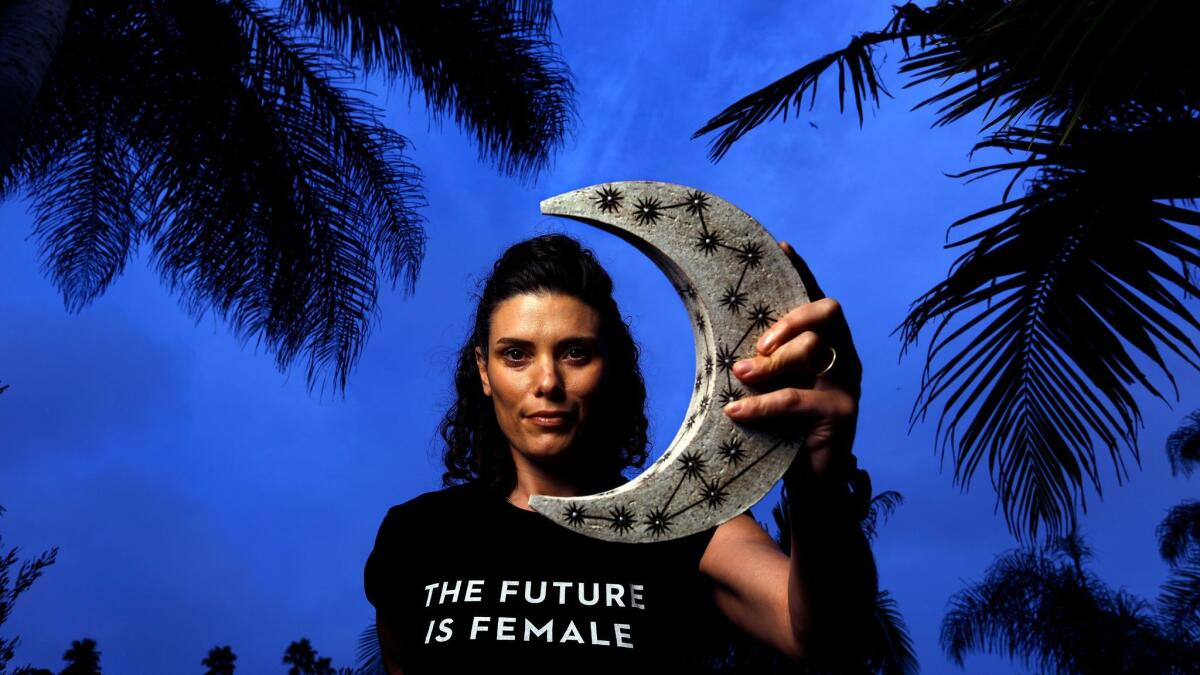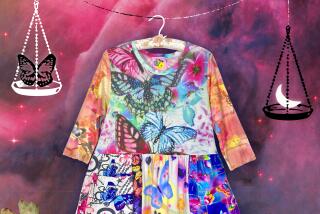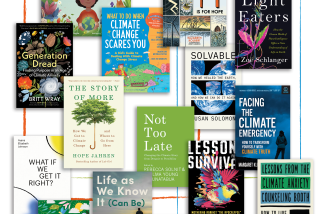Just in time for global distress, astrology hits the bookshelves
In “A Journal of the Plague Year,” which covers the 1665 outbreak of the bubonic plague, Daniel Defoe notes that before the epidemic struck, “The people … were more addicted to prophecies and astrological conjurations, dreams and old wives’ tales than ever they were before or since.”
Some 350 years later, history rolled over and repeated itself: In the years preceding our current predicament, America was reviving its interest in occult practices like crystal healing, tarot reading and, of course, astrology. The New York Times and the Atlantic both covered astrology’s resurgence in 2018; the New Yorker followed in 2019. I myself published a piece in BuzzFeed on the subject in 2017.
Out of these stories emerged a consensus on astrology’s modern appeal: Even before COVID-19 we lived in unpredictable times, and astrology layers an interpretative framework over the chaos of existence. Also, personality typing is highly meme-able, as Instagram accounts like Not All Geminis have demonstrated.
But to its practitioners, astrology is more than just a pop culture phenomenon, a throwaway joke for when things aren’t going your way (why is Mercury always in retrograde?). It’s also hard to monetize online. And so some of the internet’s most prominent astrologers have moved to expand beyond their tweets, publishing books on what astrology means to them and what they believe it can mean for us.
None of these books attempts to predict the future, nor do they offer the cheery, easily debunked assertions that horoscopes often make. Instead they mostly focus on astrology as a tool for self-reflection, which feels appropriate for a moment in which we’re all essentially trapped with ourselves. Who are we, and who do we want to be? Three recent books by modern astrologers seek new ways to approach these questions.
The most approachable is Dorothea Lasky and Alex Dimitrov’s “Astro Poets: Your Guides to the Zodiac,” published in October. Lasky and Dimitrov have been running a Twitter account under the handle @poetastrologers since 2016, sending out surrealist horoscopes, astrology in-jokes and poetry recommendations to their 600,000-plus followers.

“Astro Poets” treads familiar ground: the focus is largely on sun signs— that’s the one people mean when they ask you “What’s your sign?” — offering a general overview of personality types before going into detail about what kinds of friends, lovers and texters they are. (“Gemini: I’m crying. Pisces: FINALLY!!!”)
Its tone is intimate and gossipy; the book sometimes feels more like an exercise in gleeful shade-throwing than an attempt at a coherent — much less meaningful — argument. Of Virgos’ reluctance to believe in astrology, Dimitrov writes dismissively, “I mean, these people likely have three life insurance plans by the time they’re twenty-five. They’ve probably picked out their burial plot. … It’s no wonder that the mystical feels uncontainable and terrifying to them.”
“Astro Poets” is perfectly entertaining without being tremendously insightful, and it doesn’t do much to counter the notion that astrology is a game played by narcissists and navel-gazers.
“Madame Clairevoyant’s Guide to the Stars: Astrology, Our Icons, and Our Selves,” by Claire Comstock-Gay, takes a more thoughtful approach. There are 12 essays on how the signs manifest as various archetypes; references range between classical and popular culture with a distinctly millennial bent — from Leslie Feinberg, author of the queer classic “Stone Butch Blues,” to the Olsen twins and the Rock.
In the introduction, Comstock-Gay, who has done horoscopes for various publications as Madame Clairevoyant since 2013, writes that she spent much of her early life skeptical of astrology: She didn’t see herself in the fiery, fun-loving descriptions of her sun sign, Sagittarius, and so she dismissed the whole system. It was only when she learned about other aspects of her chart that she began to see astrology as capable of nuance and inflection rather than blunt, blanket assertions.
“I had once thought of astrology as a system for shoving our wild, unmanageable selves into broad and simplistic categories,” she writes. “But what I saw then … was that astrology offered just the opposite: a space to explore complexity, to explain contradiction.”
Comstock-Gay spends the rest of the book on these contradictions, noting, for instance, that charming Libras make good celebrities — but that if we look beyond their appealing surfaces, they also offer us an opportunity to rethink our tendency to devalue celebrities as airheads. (Libra is an air sign, naturally.)
She uses Cardi B as an example: a woman who became famous partly on the basis of her looks, but then skillfully used her platform to advocate for progressive political causes. Kim Kardashian, also a Libra, has gone from sex tape stardom to studying law and advocating for criminal justice reform. There’s no reason to equate beauty with unseriousness; you dismiss Kim, Cardi, and the uses and meaning of charm at your own peril, Comstock-Gay argues.
If she’s got you hooked and wanting to know more about your own chart, the natural next step would be Chani Nicholas’ “You Were Born for This: Astrology for Radical Self-Acceptance.” Nicholas is a career astrologer with a broad platform. She curates monthly horoscope playlists for Spotify, serves as resident astrologer for O: The Oprah Magazine and maintains a horoscope newsletter with tens of thousands of subscribers.
Nicholas’ astrology is explicitly activist: She urges readers to see her horoscopes not just as a personal salve but as a call to action, which feels apt for a moment when the cult of selfhood seems especially frivolous. “Astrology reminds us that we are exactly as we are supposed to be,” she writes, “for good reason. On purpose and with a purpose that we must live out if we want to feel any kind of fulfillment.”
“You Were Born for This” can be a bit daunting: it’s a workbook, with exercises requiring you to pull up your birth chart online and to do some serious cross-referencing. One of the reasons that most popular astrology stays on the surface is that once you dive in, it gets pretty complex pretty quickly, and it can be a struggle not to feel like you’re being wrapped up in headache-y minutiae as you navigate trines and squares, planets and signs.
If you’re willing to do the work, though, and interested in the results, it can be a unique opportunity for self-reflection. Nicholas doesn’t insist that the stars fixed us with a singular personality type at birth; rather, she encourages us to use astrology as a tool that can deepen our understanding of our place in the world.
Nicholas has said in interviews that she sometimes wishes people would read a little less astrology. “I don’t want people to need me, honestly,” she said when we talked for my piece in 2017. “I don’t think it’s healthy to be obsessed with what’s happening in the sky every day. Just go live your life. It’s fine!”
Which feels like the most relevant message for those of us living through 2020: Your life is going to happen to you no matter what. The stars may be able to give you some guidance, but they can’t tell us what happens next.
Romanoff is a writer and the author of several novels for young adults.
More to Read
Sign up for our Book Club newsletter
Get the latest news, events and more from the Los Angeles Times Book Club, and help us get L.A. reading and talking.
You may occasionally receive promotional content from the Los Angeles Times.







